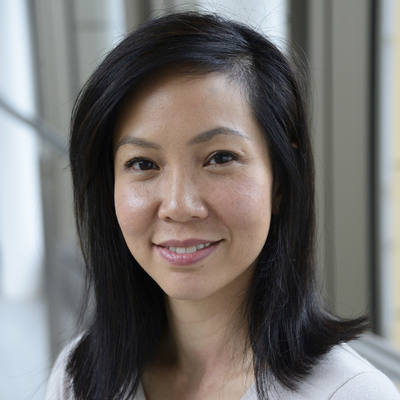
Dr Serena Nik-Zainal
CRUK Advanced Clinician Scientist and Former Wellcome Sanger Institute Group Leader
Alumni
This person is a member of Sanger Institute Alumni.
This page is no longer being updated and is a historical record of Serena Nik-Zainal’s work at the Sanger Institute.
Serena was a Career Development Fellow (CDF) Group Leader in the Cancer Genome Project and is an Honorary Consultant in Clinical Genetics at Addenbrooke’s Hospital in Cambridge. She pursues biological understanding of the mutational signatures that have been identified in primary human cancers.
Serena qualified in medicine from the University of Cambridge in 2000, trained as a physician and subsequently specialised in Clinical Genetics. She undertook a PhD at the Wellcome Sanger Institute in 2009 with Mike Stratton exploring breast cancer using next-generation sequencing technology.
She demonstrated how detailed downstream analyses of all mutations present in whole-genome sequenced breast cancers could reveal mutation signatures, imprints left by mutagenic processes that have occurred through cancer development. In particular, she identified a novel phenomenon of localised hypermutation termed ‘kataegis’.
In 2013, Serena was awarded a Wellcome Trust Intermediate Clinical Fellowship to pursue biological understanding of the signatures identified during her research training. She joined the Sanger Institute Faculty team in 2014 and led the Signatures of mutagenesis in somatic cells group.
Serena continued to hunt for mutation signatures in large cancer datasets using computational approaches. She led the analysis of 560 whole genome sequenced breast cancers, the largest cohort of cancer genomes of a single tissue type to date. Serena explores mutation signatures biologically through cell-based model systems. She leads a clinical project, Insignia (www.mutationsignatures.org), recruiting patients with DNA repair/replication defects, aging syndromes and neurodegeneration, and people who have been exposed to environmental/occupational mutagens to gain biological insights into mutational phenomena in these patients.
She is focused on advancing the field of mutational signatures through computational innovations on the analyses of mutational signatures, through more sophisticated cell-based modelling and she works towards accelerating the translation of mutational signatures into the clinical domain.
My timeline
CRUK Advanced Clinician Scientist
CRUK Pioneer Award
Inaugural Double Helix Day 2016 : Speaker
William Bate Hardy Prize
CRUK Future Leaders Prize
Insignia project recruitment commenced
Wellcome-Beit Prize
AACR-Pezcoller Foundation Scholar-In-Training Award
Wellcome Trust Intermediate Clinical Fellowship awarded
Certificate of Specialist Training Awarded in Clinical Genetics
PhD awarded
EACR Susan G. Komen Prize
Robin Winter Prize
ASHG Semifinalist Trainee Prize
Wellcome Trust Clinical PhD Programme commenced
Quick links
Programmes and Facilities
My publications
